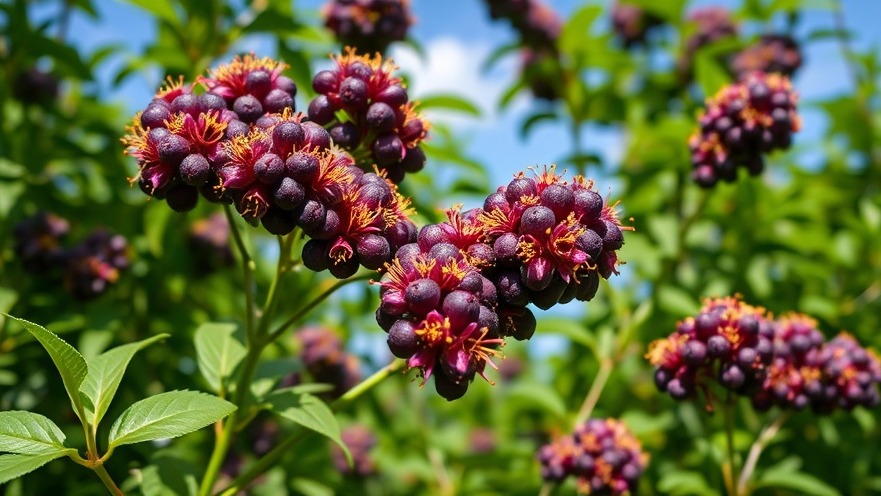
Embracing Elder: A Sustainable Choice for Your Garden
As homeowners increasingly seek to enhance their gardens with eco-friendly plants, elder (Sambucus nigra) emerges as a fantastic choice. This native shrub or small tree not only beautifies outdoor spaces with its fragrant white flowers and dark, ornamental leaves, but its versatile berries also bring value to our culinary endeavors. By cultivating elder, you can engage in sustainable home design while enjoying the added benefits of healthy and delicious harvests.
Understanding the Benefits of Elder Trees
Elder trees are robust and adaptable, making them suitable for a variety of gardening styles—from homesteading plots to elegant eco-landscapes. Their fragrant flowers attract beneficial pollinators, promoting a healthy ecosystem in your backyard. Additionally, the berries can be harvested for syrups, jams, or natural remedies, creating opportunities for zero-waste practices through the complete utilization of the tree’s offerings.
The Ecological Value of Growing Elder
The ecologically-conscious homeowner benefits not only from the aesthetic appeal of elder trees but also their role in biodiversity. As a native species, elder helps to maintain a balanced local ecosystem by providing shelter and food for wildlife. This is particularly significant in suburban areas where natural habitats are shrinking. By planting elder, you contribute to the preservation of local fauna, supporting flora and fauna diversity in your community.
Steps to Grow Your Elder Tree
If you're ready to grow your elder tree, follow these essential steps to ensure a successful planting:
Choose the Right Location: Elder trees thrive in a variety of soil types but prefer well-drained soil and a sunny spot with some protection from harsh winds.
When to Plant: Spring is the best time to plant elder, giving the tree ample time to establish roots before the winter chill sets in.
Care Tips: Water regularly during dry spells, and consider composting with organic matter to enrich the soil. Mulching around the base also helps conserve moisture.
Natural Landscaping with Elder
While elder trees serve diverse purposes, they can also play a crucial role in your garden's layout. Given their height and spread, elder can act as a natural privacy screen or windbreak, which is particularly beneficial for energy efficiency in your home. Strategically placing elder trees can lower heating bills in winter by blocking cold winds while allowing shade in summer months, thereby reducing air conditioning usage.
Getting Involved in Composting
Incorporating elder trees into your garden aligns perfectly with a sustainable approach to composting. Every part of the elder—be it flowers or berries—can be used in homemade compost or leave materials that add nutrients back into the garden, enhancing overall soil health. This technique is integral for eco-friendly gardening and ensures that your garden thrives without releasing toxins into the environment.
Transitioning to a Toxin-Free Home
By adopting elder trees in your landscaping, you take one step closer to creating a toxin-free home. The elder’s ability to grow without synthetic fertilizers or pesticides reduces chemical runoff into the soil and promotes a healthier living space for your family. With a focus on natural landscaping, you can feel confident about your garden’s impact on overall wellness.
As you embark on your eco-friendly gardening journey, consider the elder tree’s multifaceted benefits. This beautiful, versatile plant is not only a remarkable addition to your outdoor aesthetic but also a practical ally in achieving a sustainable home design.
Ready to transform your garden? Start growing elder today and embrace its many benefits for a healthier, more sustainable lifestyle!
 Add Row
Add Row  Add
Add 




Write A Comment